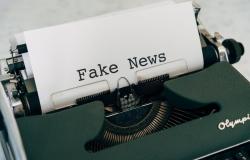A Global Elite Panel Show: Would We Lie to You?

The G20 Team worry about the level of misinformation disfiguring global politics.
Before Brazilian President Lula da Silva kicked off this year's G20 conference, the First Lady Janja da Silva took to stage with a call to arms against misinformation. But just as she was building momentum, a ship's horn rudely interrupted her speech. With quick wit, she joked about Elon Musk being behind it, firing back: 'I’m not afraid of you. F*** you.' The crowd laughed, but the moment underscored a deeper truth: misinformation and Musk have become synonymous. And for good reason—an EU report shows that ‘X’ (or Twitter, as nostalgists still call it) has the highest share of disinformation among the six largest social networks.
Misinformation has always loomed over multilateral and international institutions like the G20. The vague objectives inevitably lead to them being tied up in convoluted ideas of shadowy clandestine figures, pulling the strings of puppet presidents and prime ministers, all to achieve some sort of murky vision of global control. The COVID-19 pandemic only cranked up the paranoid, with social media thriving during lockdowns and acting as a megaphone for disinformation and crackpot ideas.
Conspiracy and misinformation have particularly flourished since Musk’s acquisition of X, with the BBC finding over a third of once banned accounts now share problematic content or false information. The billionaire himself adds fuel to the fire, amplifying controversial claims to his two hundred million strong following. These range from baseless claims of voter fraud in Michigan to the promotion of anti-semitic conspiracy theories.
Musk responded to the First Lady’s comments (unsurprisingly on X), by stating 'They’re going to lose the elections soon'. His growing pattern of outbursts, conspiracies, and lies has become more worrying following his appointment in President Trump’s ‘Department of Government Efficiency’, where he holds substantial powers to enforce cuts across a range of services. This highlights the pervasion of conspiracy and lies into elected institutions.

In December 2023, Brazil and Germany signed a Joint Declaration of Intent on Information Integrity and Combating Disinformation. The G20 Summit went on to expand upon this, with the topic key to their agenda, especially relating to sustainable development. Theoretically, the G20s position as less deliberative and universalistic than the UN allows it to bypass deadlocks leading to a higher probability of consensus.
The G20 Digital Economy Working Group (DEWG) made combating fake news and hate speech a central component of their agenda. The Promoting Information Integrity side event, hosted in Spring this year, discussed global and regional initiatives to promote information integrity, especially related to the fight against climate change, and consider the public interest of content producers, in particular, those deemed to contribute to the ‘public good’.
The DEWG found that information integrity faces increasing challenges of accuracy. Effective content moderation is necessary for the sustainability of news media and to combat risks to information integrity online. They acknowledge that there is a need to build governance capacity to gauge and address systemic misinformation. They recommend developing systems of accountability for generative AI services.
Brazil and Chile signed a Memorandum of Understanding to Promote Information Integrity on the 19th of November. This aims to promote information integrity, particularly in the digital sector. Later that day, Brazil, the UN and UNESCO launched the Global Initiative for Information Integrity on Climate Change, which focused much more specifically on climate change, including funding for research and action globally to reduce the spread of misinformation and its effects. It totals an initial US$10-$15 million over the next 36 months in the form, mainly to non-governmental organisations to support their work, including climate information, communication strategies, and public awareness campaigns. Chile, Denmark, France, Morocco, the UK, and Sweden have confirmed participation.
The Leaders’ Declaration also discussed the increased 'speed, scale and reach of misinformation and disinformation' created by the evolution of artificial intelligence technologies. It calls for greater transparency and responsibility in the tech sector, and promises to work with stakeholders on this matter, many of the most powerful of which are based in G20 countries. However, it lacks concrete solutions and policy proposals to tackle the issue.
Information integrity has been a centre of attention at the G20 summit. This is no surprise given its prominence in recent news stories and on social media. This is a vital step forward in preserving democracy and honesty in governments and public life, and the focus on the denial and downplaying of climate change is notable and commendable. However, more must be done, and the success of the Global Initiative is ultimately determined by how many countries participate, and given the rise of the far-right and climate-sceptic politicians in numerous advanced economies, the long-term sustainability of this project must be called into question.
As many worry that Musk’s influence over the US government—and, indeed, that of other Silicone Valley plutocrats—represents the emergence of a genuine Russian-style oligarchy, this is a challenge where the stakes could not be higher.
G20 Team: Alicia Sear-Acinas, Amelia Eveleigh, Ethan Ryan, Gregory Stiles, Grzegorz Stahl, Madeleine Fearn, Matthew Bishop, Imogen Parry, Scarlett Vickers, Shengyao Guo.
Photo by Markus Winkler


